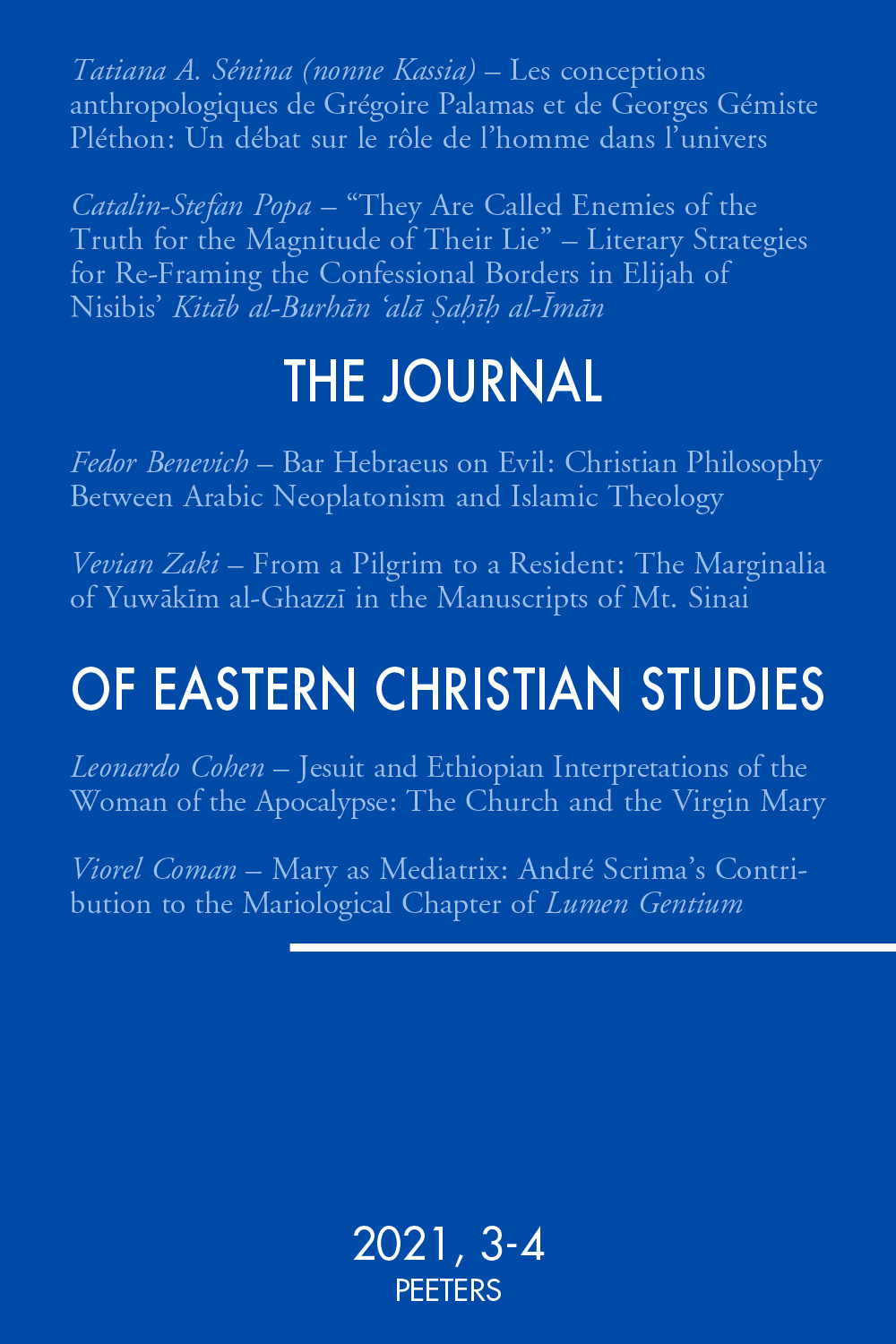 previous article in this issue previous article in this issue | next article in this issue  |

|
Document Details : Title: Spreading the Gospel to the Frontiers of Empire Subtitle: Nikolay Il'minsky, the Russian Orthodox Church and Islam in the Nineteenth Century Author(s): COUSINS, Basil Journal: Journal of Eastern Christian Studies Volume: 63 Issue: 1-2 Date: 2011 Pages: 189-219 DOI: 10.2143/JECS.63.1.2149619 Abstract : This paper considers the 19th century mission of the Russian Orthodox Church to Muslims on the frontiers of the Middle East and the wider Middle East, focusing on the contribution of an important Russian Orthodox personality often overlooked in western studies of mission. Il’minsky was born on 23rd April 1822 in Penza, the son of a Russian Orthodox priest, and pioneered a radical educational approach to Orthodox proselytisation by respecting local languages and customs. He was a leading educationalist thinker and practitioner who worked in Kazan between 1850 and 1891. The Il’minsky System of Education consisted of several elements: the Kazan Central School for Baptised Tatars which he founded in 1863, the centrepiece of Il’minsky’s work; the Translation Commission, St Gury Brotherhood and the Orthodox Missionary Society; the Kazan Teacher Seminary; extensive publications and translations. Il’minsky had studied Arabic and Islam in the Middle East. However the focus of his attention was Christian mission to Muslims. He was a successful missionary and his methods were very advanced, not just in the Orthodox Christian world, but also when compared with western Christian missions. Generally, missionary initiatives originated in Kazan, rather than in Moscow or St Petersburg. In the late 18th century the first Theological Academy with some serious pretensions to mission functioned briefly, being refounded in the mid 19th century as The Kazan Ecclesiastical Academy. The comparative failure of the Orthodox mission in Kazan and the surrounding region may be traced directly to a singularly close identification of the Russian Church with the Russian State as well as to a less than sensitive approach to the conquered peoples. The 450 years from the conquest of Kazan witnessed the management and mis-management of the mission of the Russian Orthodox Church The same period has witnessed the steady advance of Islam within the Russian Empire, most particularly amongst the indigenous peoples progressively conquered by the Tsarist armies. Throughout the period the principal result of all the missionary work had been the frequent massive defection of Christian Inorodtsy (non-Russians) to Islam. The Il’minsky System was one of the few enduring successes of Russian Orthodox missionary history, and the 300,000-400,000 Kryashen (Christian Tatars and other tribes) in the Kazan region, may be claimed as an expression of the Russian Orthodox Church’s mission to Muslims and the living legacy of Il’minsky’s method. |
